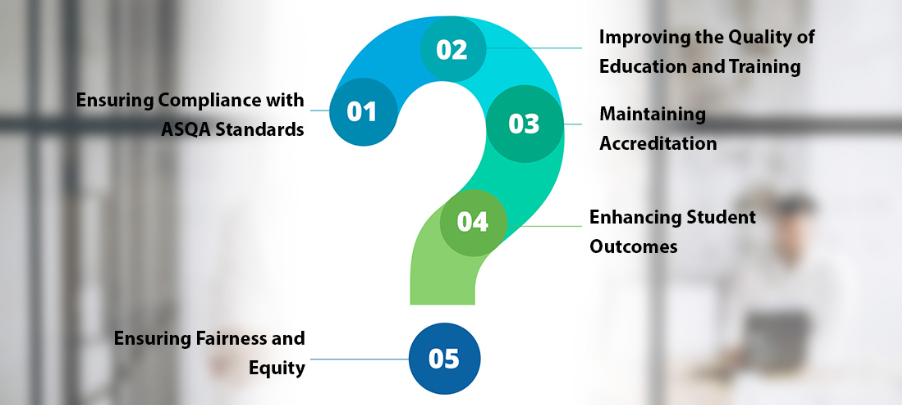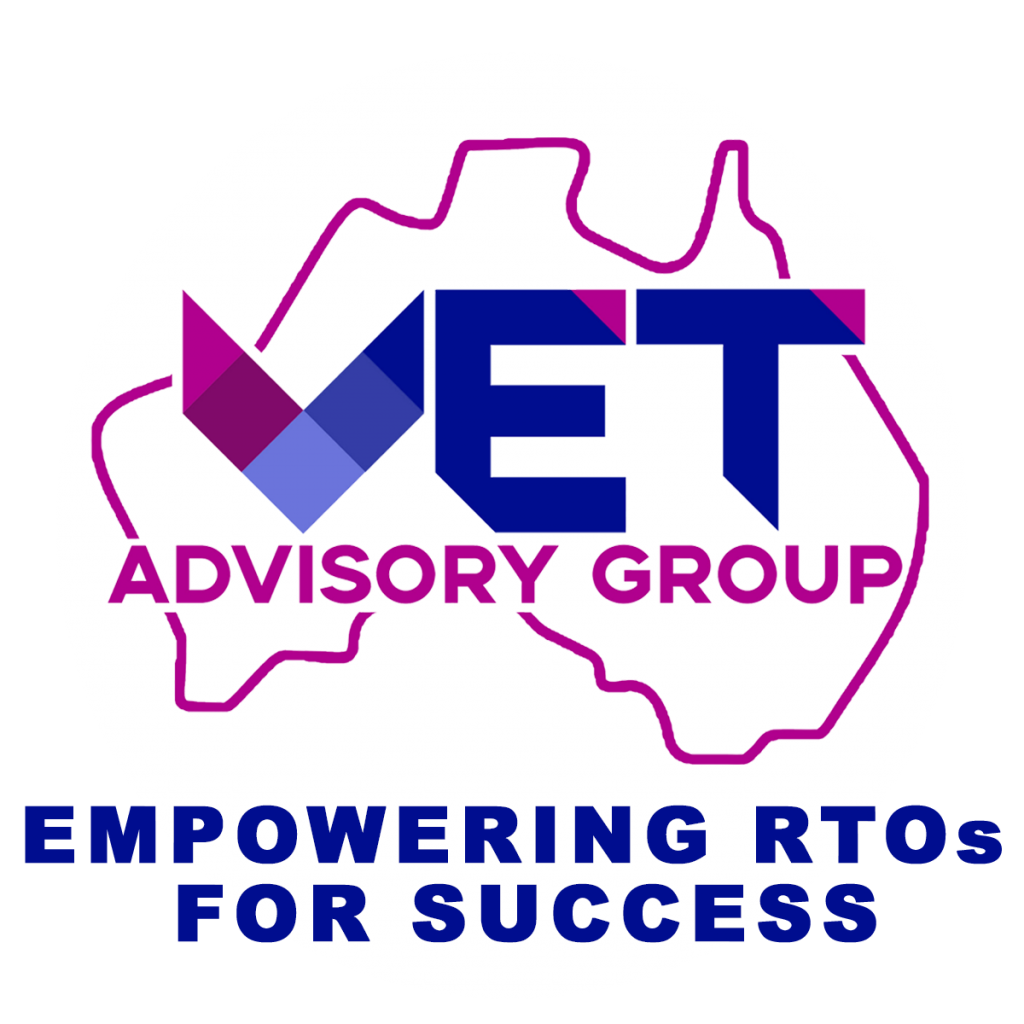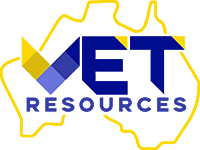
Australia’s education and training sector relies heavily on Registered Training Organisations (RTOs). These institutions offer a variety of vocational education and training (VET) programs to students and learners nationwide. RTOs have a great responsibility and are held accountable for their actions. The Australian Skills Quality Authority (ASQA) imposes strict regulations and quality standards that RTOs must adhere to. Compliance with these standards is essential for maintaining accreditation and delivering quality education and training.
In this article, we will discuss the importance of RTO audits for compliance and quality assurance. RTOs can benefit from these audits by improving their operations and outcomes.
What You Can Do To Be Ready For An RTO Audit
Preparing for an RTO audit doesn’t have to be complex and time-consuming; with compliant practices already in place, it can become a useful tool in showcasing your organisation’s strengths. It starts with ensuring that your RTO fulfils its obligations during each phase of the learner journey. This requires an in-depth look at not only policies and procedures but also the actual practice of these procedures. Reviewing records such as enrolment forms, payment plans, assessment feedback notes and validation documents are just a few assurance points within this process.
Moreover, a continuous effort should be made to review any upcoming legislative changes to ensure that your organisation takes all necessary steps to remain above board in terms of compliance standards. Regular employee check-ins on their understanding of policy changes are also essential to ensure staff are aware of regulatory updates they must adhere to. Keeping up with industry news can also help maintain current processes when it comes time for audit readiness. With adequate preparation and investment into following industry legislation, passing an audit can feel less daunting and more like a confirmation that you’re doing things right.
What Happens During An Audit
During an RTO audit, the Australian Skills Quality Authority (ASQA) will undertake a risk-based assessment of the Registered Training Organisation (RTO) or training provider. Each audit is tailored to meet the needs of the individual RTO and considers the history of compliance and their risk intelligence information. Depending on their performance history and data gathered from other sources, ASQA could determine that a more extensive audit is necessary for higher-risk organisations.
In most cases, the audit will involve a physical visit to the training site. This is to verify that all evidence supplied by the RTO supports its claims and policies. The duration of this site visit can vary depending on the size and scope of the audit; however, significant efforts are made to confirm any evidence provided. Any areas that need improvement during this process must be addressed within a given timeframe for compliance to remain valid.

What Is An RTO Internal Audit
An RTO Internal Audit is a form of feedback that helps examine the day-to-day operations of an RTO. It is an independent and objective activity that can assist in improving the existing practices. The internal audit compares how things operate according to how they should function and reveals problems that need tending to. This includes reviewing files, information, forms, and other aspects of the business structure.
The Internal Audit process is an incredibly valuable tool in the management system toolkit of any RTO. By utilising it, your RTO will be able to identify problem areas sooner rather than later and make improvements before a potential external auditor comes in for inspection. It also serves as a source of stress relief – knowing that you have taken steps to resolve issues improves morale and makes everyone more confident about their abilities. An effective Internal Audit process can provide useful feedback and make sure your RTO remains on track for success!
RTO Audit Requirements
RTO audits are conducted to ensure compliance with the Standards for Registered Training Organisations (RTOs) 2015. The process involves reviewing policies, procedures, and practices to meet ASQA’s standards. Interviews with staff, trainers, and students may be conducted, along with a review of documentation and records.
5 Reasons why RTO audits are essential for compliance and quality assurance.

-
Ensuring Compliance with ASQA Standards
To maintain quality education and training, RTO audits are necessary. These audits ensure that education and training providers meet national standards and regulations. Compliance with these standards is crucial. The standards cover course content, delivery methods, assessments, and student support services.
-
Improving the Quality of Education and Training
RTO audits offer a chance for education and training providers to enhance course quality. Auditors offer feedback and suggestions for improving the learning experience. This input can help RTOs identify areas for improvement and make changes that benefit their students.
-
Maintaining Accreditation
RTOs must maintain accreditation to offer nationally recognised qualifications. RTO audits are a requirement for maintaining accreditation. Not adhering to national standards can lead to the loss of accreditation, which has significant ramifications for the RTO and its students.
-
Enhancing Student Outcomes
The education and training provided by RTOs affects student outcomes. RTO audits ensure high-quality education and training that meets student needs. Achieving better outcomes is possible through higher completion rates, improved employment opportunities, and higher salaries.
-
Ensuring Fairness and Equity
RTO audits also help ensure that education and training providers deliver fair and equitable courses. All students have equal access to learning opportunities and support services. RTO audits pinpoint areas for improvement to ensure equal chances of success for all students.
Who Audits RTOs
Internal audits of an RTO are done internally by an independent RTO Consultant who assesses the organisation’s performance against a series of benchmarks that have been set out. This helps identify any areas where they may fall short or issues that need to be addressed before an external audit takes place.
ASQA carries out External Audits and involves assessing the overall performance of an RTO against the Standards for Registered Training Organisations (RTOs) 2015. By doing so, ASQA ensures that relevant legislation is being complied with and ensures that nationally endorsed training quality – including issues such as student engagement, learning environment and resources – are met or exceeded by all RTOs in Australia.
Why Get Help With Your Next ASQA Audit
Having an RTO involves ensuring your business complies with the Standards for RTOs. To ensure you meet current requirements and stay ahead of any future changes, many RTOs choose to get professional help for their upcoming ASQA audits. Despite this, shockingly, only one in five RTOs are fully compliant at the time of audit, and almost one in three still aren’t compliant after completing rectifications!

This means getting help with preparing for your next ASQA audit can mean the difference between passing and potentially facing higher penalties due to non-compliance. Expert guidance assisting you to access processes to become proactively compliant, know what assessment activities may trigger an audit, understand requirements specific to your organisation, and identify gaps before the auditor arrives can aid in a successful audit outcome. The support available for your Audio preparations enables you to take control of any corrective actions required immediately and save yourself from any unnecessary follow-up investigations or repeat visits from auditors.
Contact VET Advisory To Prepare Your RTO Internal Audit
Conducting an RTO internal audit is crucial to identify gaps and improve your performance. VET Advisory is a professional consultancy firm specialising in RTO compliance and quality assurance. We can provide you with expert advice and guidance to prepare your RTO for an internal audit. Contact VET Advisory today to ensure that your RTO meets all regulatory requirements and delivers high-quality training to your students.
Suggested Read: ASQA Compliance Simplified: Your Complete Guide to the Annual Declaration on Compliance

